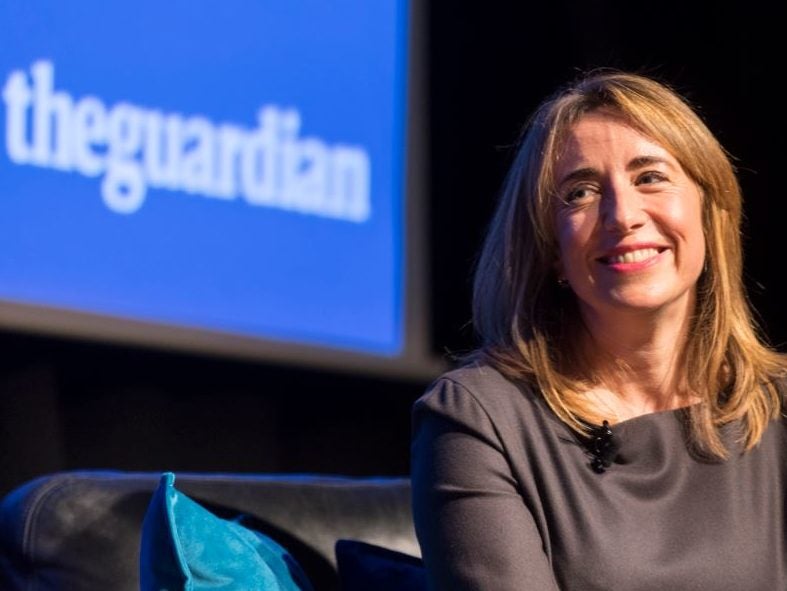
Guardian editor-in-chief Katharine Viner has revealed that investigative journalism is a major driver of its contributions business.
Guardian Media Group reported revenues of £255.8m last year, up 13% on 2021, marking its biggest annual turnover since 2010. The growth, it said, was primarily down to digital reader revenues, incorporating contributions and digital subscriptions.
Speaking at the Sir Harry Summit, a conference held to honour the late Sir Harry Evans, Viner told of the commercial importance of investigative journalism.
“The harder the investigation, the more challenging, the more legal attacks we have, the more the readers come and back us,” she said. “And so I think it’s a really inspiring model for investigative journalism.”
She also said: “This voluntary contributions model that we introduced in 2016, to much hilarity – everyone sort of saying, ‘Why would you pay for something that you could get for free?’, begging bowl jokes and so on – but actually I think the readers really understood it.
“And what was very clear right from the beginning was that what readers really wanted to give us money for was the most serious, most difficult investigative reporting. It’s an incredibly inspiring thing that the readers have shown us the way.”
Viner said that her investigative team has grown to “about four times the size” of when she started in her role in 2015. She revealed The Guardian will soon launch an investigations team in the US.
Viner was speaking on a panel, chaired by former Sky News boss John Ryley, that discussed the challenges of funding investigative journalism.
On the same panel, Deborah Turness, the chief executive of BBC News and Current Affairs, revealed that she will soon be launching a “new brand within our brand” called BBC Verify. It will aim to “pull back the curtain” on her journalists’ investigative work and introduce “radical transparency”.
Steve Hasker, the president and chief executive of Thomson Reuters, spoke about his plans to invest $100m into AI to enhance his journalists’ work. He said: “I don’t know in all honesty whether $100m a year in AI is nearly enough. But what we wanted to do was send our customers, and equally importantly our colleagues, a message that we view AI as a transformational moment.”
He said that before the discussion, he had spoken to his co-panellist, Sir Michael Moritz, the billionaire tech investor who heads up the San Francisco Standard, about the significance of AI. Hasker said: “Mike and I were comparing notes beforehand and talked about a PC on every desk, and then the internet, mobile, social, cloud – AI feels bigger than those… So we really wanted to put a stake in the ground.”
Email pged@pressgazette.co.uk to point out mistakes, provide story tips or send in a letter for publication on our "Letters Page" blog
